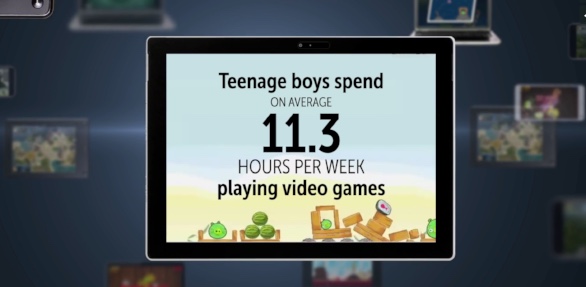
Many people use the word addiction casually to describe something they do often and somewhat compulsively. We hear people say things like, “I’m addicted to chocolate" or "I’m addicted to my cell phone.” Clinical addiction is a different matter. A clinical diagnosis is defined by:
The term “addiction” as it relates to the internet is confusing. Internet Gaming Disorder as a diagnosis is currently being considered for official recognition by the American Association of Psychiatry (APA). This is based on studies that show psychologic and physiologic patterns similar to those exhibited by a person with a drug addiction. For example, MRI studies of the brains of people engaged in excessive video game use look very similar to people addicted to drugs like cocaine.
However, internet addiction is not currently being considered by the APA as a diagnosable addiction. This is in part because the internet is so expansive, making it hard to assess what aspects of it are actually addictive.
If you are concerned about addiction in yourself or someone else, or you want to teach your kids about this issue, take a look at these two questionnaires below that screen for problematic use. Each has been validated by research. Even if a person has no signs of addiction, I think it is a great idea to do these surveys with your family as a way to open a conversation around addiction.
Survey developed by Dr. Paul Gentile
Over time, have you been spending much more time thinking about playing video games, learning about video-game playing, or planning the next opportunity to play?
Total your "Yes," "Sometimes" and "No" answers.
Kids are considered to be pathological gamers if they responded with a “Yes" or “Sometimes" to at least 6 of these 11 questions.
What is Social Media Addiction? — Social Media Victims Law Center
Addictive potential of social media, explained — Stanford Medicine's Scope Blog
Learning How to Exert Self-Control — New York Times
New study identifies the most definitive signs of "TikTok Addiction" — PsyPost
Internet Gaming Order in the DSM 5 — In the fifth edition of the Diagnostic and Statistical Manual of Mental Disorders (DSM-5), Internet Gaming Disorder is identified in Section III as a condition warranting more clinical research and experience before it might be considered for inclusion in the main book as a formal disorder
The nation's first center specializing in the treatment of problematic internet, video game and technology use.
Founded by Dr. David Greenfield, one of the world's latest voices on internet, computer and digital media behavior.
A law center dedicated to holding social media companies accountable for the harm they do to children.
Digital Binging: Is it a Problem?
Gaming Internet Addiction Test